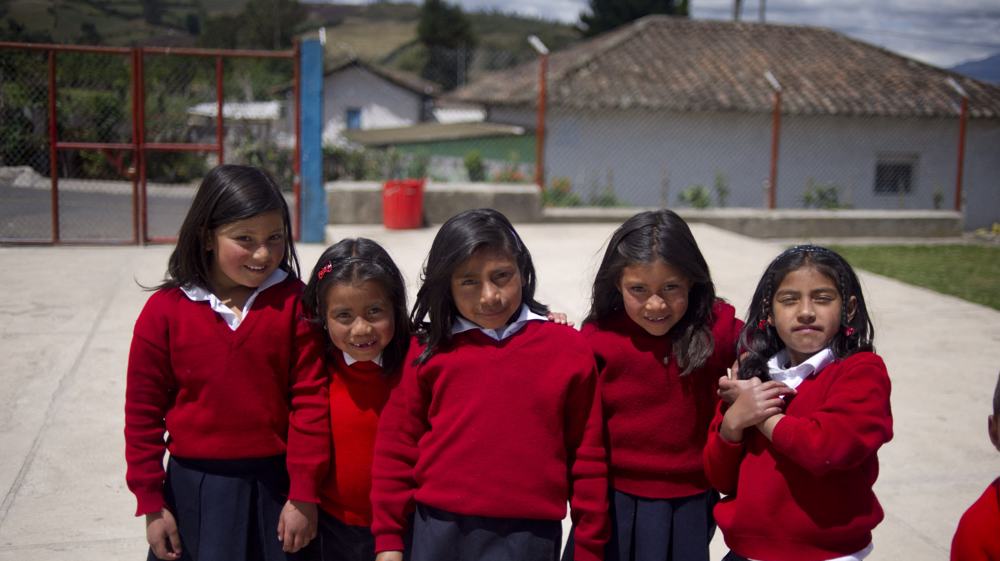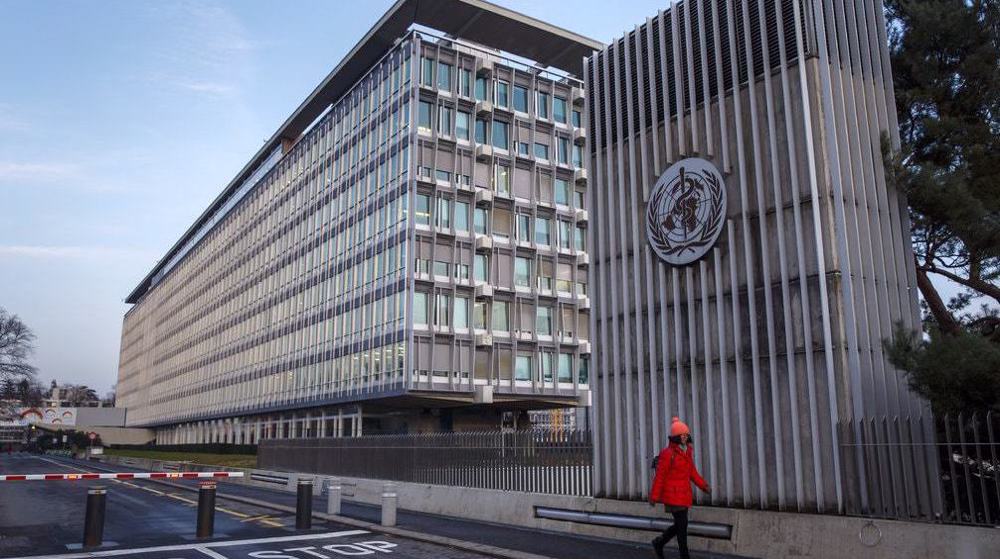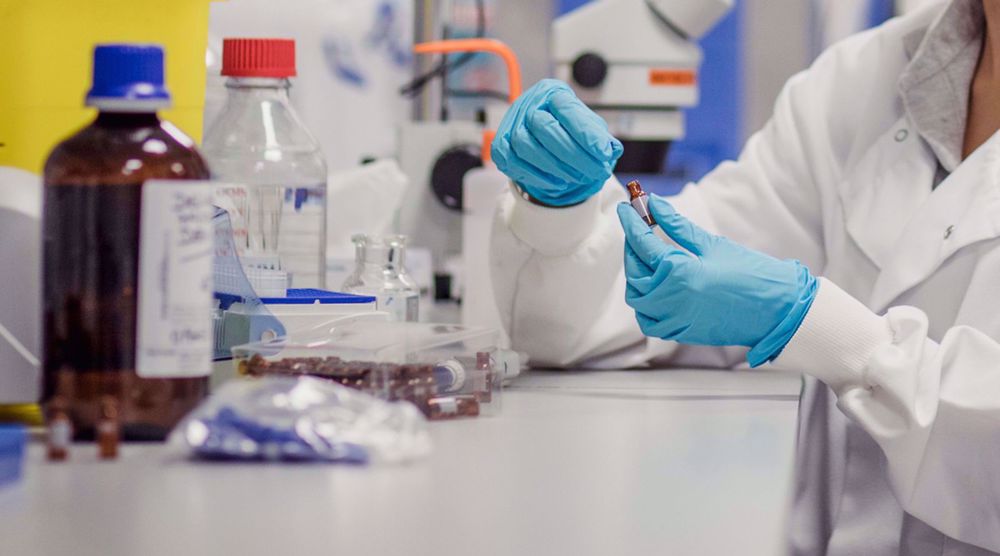World’s coronavirus infections pass 660,000 +Updates
Cases of coronavirus infection in the world have surpassed 660,000, while the epidemic has yet to reach its peak in the worst-hit countries of Europe and has just begun in the world’s poorest continent, Africa.
Data compiled by the Johns Hopkins University also showed that the number of people who have died of the disease caused by the coronavirus had reached 30,883 as of Sunday — two-thirds of them having been reported in Europe.
The following is the latest on how the pandemic has been affecting the world in the past 24 hours:
New Zealand registers 1st death
New Zealand confirmed its first death from the virus on Saturday, according to Director-General of Health Ashley Bloomfield, who said the victim had been a woman in her 70s.
The number of infected people in New Zealand also rose by 63 to a total of 514, Bloomfield said.
Over 2,600 confirmed infected in Africa
The head of the World Health Organization (WHO) said on Saturday that the COVID-19 disease had now spread to dozens of countries in Africa.
The number of confirmed cases has reached 2,650, along with 49 deaths in the region, according to Tedros Adhanom Ghebreyesus.
He said that the WHO stood ready to support all countries in the combat against the pandemic.
Ghebreyesus said nations with weaker health systems had to act aggressively to contain the outbreak and prevent community transmissions.
Africa has become a main concern for the organization since the virus began to spread across the world due to the continent’s strained medical systems and lack of necessary infrastructure.
China reports 5 deaths
China, which was the first country to report the disease in December last year and the first epicenter of the virus, has now reported only five new deaths and 45 new confirmed infections in the 24 hours through midnight Saturday.
All the deaths were in Hubei Province, where the virus first emerged, according to the National Health Commission.
All but one of the new cases were people who were infected abroad, it added.
China has so far reported a total of 81,439 cases of COVID-19 along with 3,300 deaths.
The commission said some 477 people had been discharged from hospitals on Saturday. A total number of 75,448 people have recovered from the disease in China.
South Korea reports 105 more cases
South Korea reported another 105 cases, bringing the country’s total so far to 9,583, according to the Korea Centers for Disease Control and Prevention.
It also confirmed eight more deaths, bringing the total fatalities to 152.
Japan in ‘critical stage,’ Abe vows ‘powerful’ aid package
Japan’s Prime Minister Shinzo Abe promised an unprecedented aid package on Saturday as cases of COVID-19 in the country climbed to more than 1,500, with 52 deaths, according to the public broadcaster NHK.
The figure excludes those from a cruise ship quarantined in the country since last month.
“We are in a critical stage,” said the prime minister of the world’s third-biggest economy. “We need to be ready for a long-term battle.”
“The pandemic is inflicting extremely big damage to Japan’s economy,” Abe said. “We’ll deploy a huge, powerful package that will include a full range of fiscal, monetary, and tax measures.”
Though the details of the package have not been finalized, Abe said it “will exceed that [package] compiled in response to the global financial crisis of 2008, which was worth a total 528 billion dollars.”
He made the announcement as health officials confirmed a further 60 cases in the capital, Tokyo, on Saturday. They also announced 57 new cases at a center for the disabled in Chiba Prefecture, near Tokyo, according to the NHK.

Canada enforces new travel restrictions
On the other side of the world, Canadian Prime Minister Justin Trudeau announced new restrictions on Saturday.
He said that people who were showing symptoms of the disease would be blocked from domestic flights or inter-city passenger trains.
Trudeau said his government was giving new tools to airlines and railways to enforce the restrictions from Monday.
Trudeau’s wife has herself been infected and is receiving treatment.
The latest travel restrictions in Canada were announced as the country’s confirmed cases reached 5,153, and the deaths 55.
Italy’s death toll passes 10,000, peak approaching
Italy, the world’s worst-hit nation, is now reporting an overall death toll of over 10,000.
Officials announced on Saturday that 889 more people had died of COVID-19 in the previous 24 hours.
The figure was the second highest daily tally since the epidemic emerged in Italy five weeks ago.
Italy’s total fatalities now stand at 10,023.

The number of people diagnosed with the new viral illness also rose by about 6,000 to 92,472, officials said Saturday.
Italy has imposed severe restrictions on movement, including a national lockdown.
“Without these measures, we would be seeing far worse numbers and our health service would be in a far more dramatic state,” said Angelo Borelli, the head of Italy’s Civil Protection Agency. “We would have been in an unsustainable situation.”
According to the Higher Health Institute (ISS), the peak of the epidemic in Italy is approaching.
“We have seen an apparent reduction in the infection curve since March 20 but we are not yet in a downward phase,” ISS President Silvio Brusaferro told the Italian press agency ANSA.
Prime Minister Giuseppe Conte has approved a new package of 4.7 billion euros (5.24 billion dollars) to help those worst hit sections of the population.
He has also urged the European Union (EU) to launch a “recovery bond” to help fund the member states’ response to the outbreak, saying a failure to tackle the emergency would be a “tragic mistake” for the union.
Spain toughens lockdown
Spain, the second worst-hit nation in Europe, announced stricter lockdown measures on Saturday that will force all non-essential workers to stay at home for the next two weeks.
Health officials said Saturday that 832 people had died of the disease in the last 24 hours.
The new fatalities brought the overall number of the deaths in Spain to 5,982.
The number of confirmed cases of COVID-19 also reached 73,235, officials said.
Health emergency chief Fernando Simon said the nation was short of intensive care unit beds as the epidemic appeared to be reaching its peak in some areas.
“We continue to have a major problem with ICU saturation,” said Simon.
Meanwhile, Prime Minister Pedro Sanchez said that the new restrictions would allow the country “to reduce the number of infected people to a much greater extent.”
Workers would receive their usual salaries but would have to make up lost hours at a later date, he added.
Sanchez also urged Brussels to act and called for a “united economic and social strategy.”
He said the EU should “issue reconstruction bonds to deal with coronavirus.”
“We do not understand why the eurozone, which shares a currency, does not share fiscal policy,” Sanchez said.
Germany’s cases pass 52,500
Germany’s confirmed cases of COVID-19 have risen to 52,547, and 389 people have died of the disease as of Sunday, statistics from the Robert Koch Institute (RKI) for infectious diseases showed Sunday.
The number of infections rose by 3,965, while the death toll climbed by 64.
The institute said that the data did not represent the complete picture as it had not received any readings from the regional states of Baden-Wuerttemberg, Hesse, and Saarland.
Greece reports over 1,000 cases
Greek health authorities confirmed 95 new cases of COVID-19 on Saturday.
Greece’s updated total is now 1,061.
Thirty two people have so far died of the disease in Greece, according to Health Ministry official Sotiris Tsiodras.
Greece has imposed a curfew until early April and has closed its borders to non-EU nationals, as well as to people from Italy and Spain.
Development Minister Adonis Georgiadis said earlier on Saturday that the restrictions would be extended beyond April 6, without providing further details.
VIDEO | Austrians against US-EU sanctions on Cuba, Iran
Hezbollah: 95 Israeli troops killed, 900 injured
Russian court orders Google to pay staggering fine of $20 decillion
Yemeni forces carried out five operations in Haifa, targeting six ships, in one year: Report
VIDEO | US-Israeli war on West Asia
Israeli war machine fails to penetrate Lebanon despite barbaric bombardment: Houthi
VIDEO | Is West's dominance over?
VIDEO | Five Syrians killed in Israeli airstrikes on al-Qusayr near Homs









 This makes it easy to access the Press TV website
This makes it easy to access the Press TV website